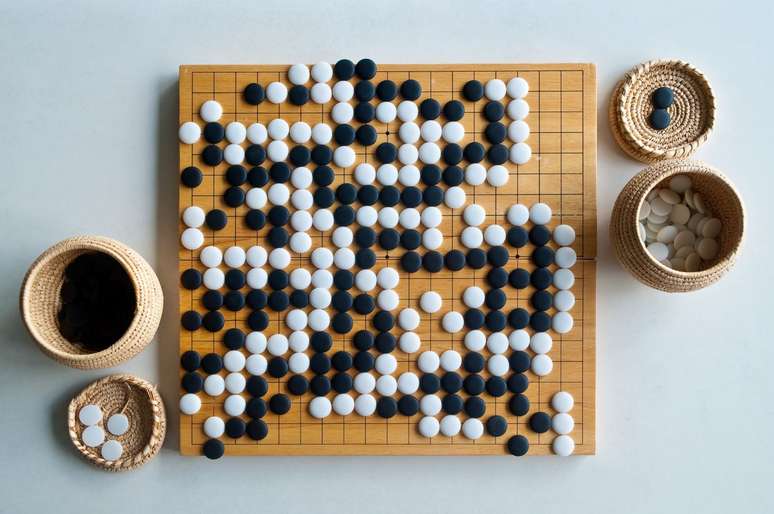Practicing brain-strengthening exercises can increase mental alertness and help the brain remain resilient
Doing brain exercises, such as completing a Sudoku, improves cognitive abilities, boosts memory, and promotes overall mental well-being. We all experience brain fog from time to time, but factors such as stress, aging, inadequate sleep, or an unhealthy lifestyle can intensify this cognitive fog. This can have dramatic effects on memory, problem-solving skills, and overall cognitive function.
Doing brain-strengthening exercises can increase mental alertness and help your brain stay focused and resilient. Here are some well-researched exercises and games to consider.
1. Learn a new language
Learning a new language can benefit your brain by improving cognitive function; improving memory; and increasing problem-solving skills. An easy way to get started is to use language learning apps or online courses, which provide a structured and convenient approach to learning a new language.
A 2018 study found that bilingualism can lead to changes in brain structure, especially in certain areas that show greater neural reserve. Neural reserve means having extra brain capacity that helps people cope with age-related cognitive decline and maintain intact cognitive functions.
2. Active reading and note taking
As you read, actively engage with the material by taking notes or highlighting key points. This method can sharpen your focus; improve comprehension and memory retention. A study of high school students published in Student Research Journal aimed to identify the most effective note-taking method among students aged 13 to 18. Participants were assigned to type, write by hand, or not take notes while watching a video, followed by ratings. The results indicated that typing notes was the most efficient method, resulting in greater retention of the material.
3. Meditation with conscious breathing
A small 2018 study suggests that practices like meditation and mindfulness interventions can improve:
-cognitive process: attention, working memory and executive functions.
-metacognitive skills: organizational, planning and problem solving skills.
But the research is mixed. A large 2021 study suggests that mindful breathing meditation alone isn’t effective at improving executive functions like attention, working memory, and long-term memory. A 2018 review suggests that mindful breathing isn’t superior to other methods, but it might be better than doing nothing.
To practice mindful breathing, sit in a quiet place, close your eyes, and focus on your breathing. Inhale deeply, counting to four, and exhale slowly. Then focus on the sensation of your breathing, which can improve concentration and reduce stress.
4. Online Chess
Playing chess requires strategic planning and focused attention, providing a complete mental workout for the entire brain. An analysis of 24 studies suggests that teaching chess can improve math performance and general cognitive ability in primary and secondary school students, with a minimum effective training threshold of about 25 to 30 hours. For convenience, there are online chess apps, so you can play on your phone in your spare time.
5. Double n-back training
Dual N-Back training is a cognitive exercise that requires you to remember and recall visual and auditory stimuli. In this activity, you must keep track of the location of visual stimuli, such as squares in a grid, and the identity or location of auditory stimuli, such as sounds or letters, in a sequence. As the difficulty increases, you will need to remember and recall stimuli from more locations in the sequence.
This training is believed to improve working memory and cognitive abilities. A small 2020 study involving 54 people found that after 16 sessions of playing the dual n-back game, participants experienced an improvement in working memory performance. You can find double n-back exercises online on several brain training websites and apps.
6. Crossword
Crosswords are word games that require you to fill in a grid of words, using clues to determine the correct answers. Engaging in crosswords can improve cognition by boosting vocabulary, memory, problem solving, and general knowledge.
In a 78-week study of individuals with mild cognitive impairment (MCI), researchers found that home-based crossword puzzle training was more effective at improving cognitive function than other web-based cognitive games.
7. Sudoku
Sudoku is a logic-based puzzle that involves filling a 9×9 grid with numbers so that each column, row, and 3×3 sub-grid contains all the digits from 1 to 9 without repetition. It requires logic and attention. A small 2020 study studied participants’ brain activity as they solved Sudoku puzzles. The researchers found that when people engaged in Sudoku tasks, both the medial and lateral regions of the prefrontal cortex (PFC) were engaged.
The medial prefrontal cortex became particularly active when their brains were searching for logical rules and strategies to solve the Sudoku puzzle. The findings suggest that Sudoku can be used for cognitive training, particularly for neuropsychiatric disorders that involve the prefrontal cortex, including depression, bipolar disorder, and Alzheimer’s disease.
8. Go
Go is an ancient Chinese board game that involves complex decision making, spatial reasoning, and long-term planning. Playing Go can help improve cognitive skills, strategic thinking, and concentration. There are several apps that you can use to play Go on iOS and Android devices.
A study found that Go players, especially those with high master levels, performed exceptionally well on cognitive reflection tests (CRT), surpassing previous measures of college students at top universities. CRT scores were strongly correlated with playing strength but not with playing frequency.
Regular Go players also tend to have a stronger theory of mind, which is the ability to understand and attribute mental states, such as beliefs and emotions, to themselves and others, contributing to their social cognitive abilities.
9.Bridge
Bridge is a card game that involves critical thinking, memory, and strategic decision making. It can be a fun way to keep your brain sharp. An older study of people ages 55 to 91 suggests that playing bridge can improve working memory and reasoning, but not vocabulary and reaction time. But more research is needed to support the effectiveness of playing bridge.
Source: Psych Central
Source: Terra
Ben Stock is a lifestyle journalist and author at Gossipify. He writes about topics such as health, wellness, travel, food and home decor. He provides practical advice and inspiration to improve well-being, keeps readers up to date with latest lifestyle news and trends, known for his engaging writing style, in-depth analysis and unique perspectives.








